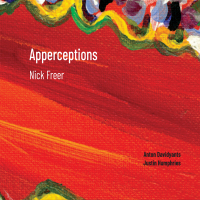Harold Pinter, the Nobel Prize-winning British playwright who addressed the isolation, fear and brutality of life in an original style that changed the face of 20th century theater, has died. He was 78.
Pinter, who was awarded the Nobel Prize for literature in 2005, died Wednesday, his wife, Lady Antonia Fraser, told the Associated Press in London. He had been in failing health in recent years, battling cancer of the esophagus as well as pemphigus, a rare autoimmune disease.
His illness left him unable to travel from his home in London to Stockholm in December 2005 for the Nobel presentation. He sent a videotaped speech that was included in the ceremony. His publisher, Stephen Page of Faber & Faber, accepted the prize on Pinter's behalf.
“Pinter restored theater to its basic elements: an enclosed space and unpredictable dialogue where people are at the mercy of each other and pretense crumbles," the Swedish Academy said in announcing that Pinter had been awarded the prize.
“It never occurred to me that I was a contender," Pinter told the Guardian of London in 2005. “I am very grateful."
His Nobel lecture, which he videotaped in England to be screened at the ceremonies, was a scalding critique of U.S. and British policies in Iraq. Pinter was an outspoken pacifist throughout his adult life. Pinter referred to the invasion of Iraq by U.S. and British forces as “an act of blatant state terrorism, demonstrating absolute contempt for the concept of international law."
He went on to propose a speech he wrote that the U.S. president could deliver. It sounded like a rant from one of his gangster thug characters. It ends abruptly: “You see this fist? This is my moral authority. And don't you forget it."
Menace and brutality in daily life -- between spouses, parents and children, and neighbors -- run through Pinter's plays like an electric current. Dialogue can be elliptical and unspecific, but it is often combative at the same time.
“Pinter was without question the most influential English playwright of the postwar," New Yorker magazine critic John Lahr told The Times in 2005. “He streamlined the nature of the stage and changed the way we hear language."
Although Pinter is best known as a playwright, he was trained as an actor and performed in plays, movies and teleplays throughout his career. Along with about 30 plays, he wrote more than 20 screenplays, including adaptations of a number of his own works, such as “The Caretaker" (1963) and “Betrayal" (1983). He wrote other screenplays, among them “The French Lieutenant's Woman" (1981), from the novel by John Fowles, and “The Last Tycoon" (1976), based on F. Scott Fitzgerald's unfinished novel.
Pinter's most famous plays -- “The Birthday Party," “The Caretaker" and “The Homecoming" -- move on spare dialogue that characters use like weapons against one another.
Piercing language, significant pauses and an undercurrent of violence create an effect that was uniquely his when he introduced it. Critics termed it “Pinteresque."
“The essence of Pinter's singular appeal is that you sit down to every play he writes in certain expectation of the unexpected," playwright David Hare said in 2005. “You never know what the hell's coming next."
Harold Pinter Influential Playwright and Nobel Winner Dies
Harold Pinter: master of menace. The English dramatist's original style changed the face of 20th century theater. As he wrote about oppression and censorship for the stage, he also lobbied for justice as a political activist.




























